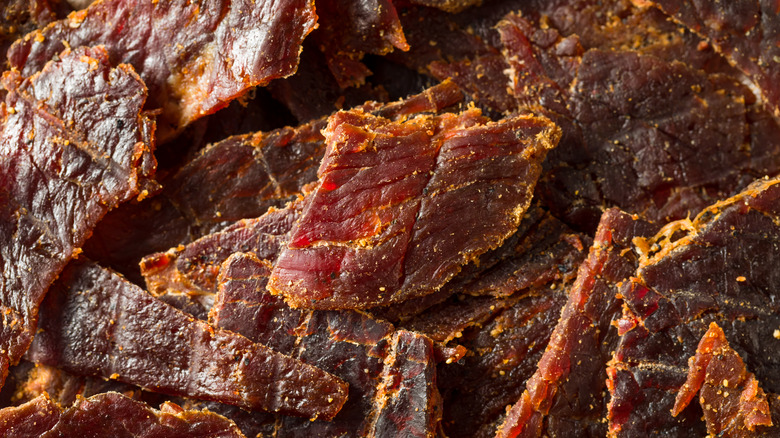This article is about the cut of meat or other dishes made with it. For the smoked brisket dish popular beef jerky recipe Texas, see Texas smoked brisket.
Brisket is a cut of meat from the breast or lower chest of beef or veal. The beef brisket is one of the nine beef primal cuts, though the definition of the cut differs internationally. Brisket can be cooked many ways, including baking, boiling and roasting. Basting of the meat is often done during the cooking. This normally tough cut of meat, due to the collagen fibers that make up the significant connective tissue in the cut, is tenderised when the collagen gelatinises, resulting in more tender brisket.

Popular methods in the United States include rubbing with a spice rub or marinating the meat, and then cooking slowly over indirect heat from charcoal or wood. This is a form of smoking the meat. Brisket has a long history in the United States. Brisket is the meat of choice for slow smoking barbecue in Texas, and is often considered the “National Dish of Texas”. In Britain, it is generally not smoked, but is one of a number of low-cost cuts which historically may have been boiled with root vegetables and mild spices, or cooked very slowly in a lidded casserole dish with gravy.
In Germany, brisket is braised in dark beer and cooked with celery, carrots, onions, bay leaves and a small bundle of thyme. In traditional Jewish cooking, brisket is most often braised as a pot roast, especially as a holiday main course, usually served at Rosh Hashanah, Passover and on the Sabbath. In Hong Kong, it is cooked with spices over low heat until tender, and is commonly served with noodles in soup or curry. In Korean cuisine, traditionally it is first boiled at low temperature with aromatic vegetables, then pressed with a heavy object in a container full of a soy sauce-based marinade.
